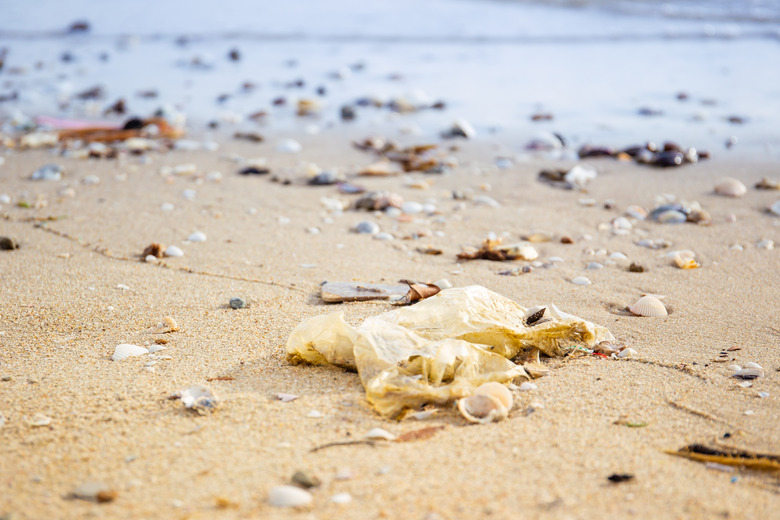What's Lurking In The Water When The Beach Is Closed?
We're well into hot girl (or guy!) summer. And we're betting if you haven't hit the beach yet this season, you've got plans to hit the water soon. As we get later into summer, though, you'll probably notice beach advisory warnings popping up more and more often – the last thing you want to see when you just wanna have some summer fun.
You already know the basics of beach advisories – it means the water's not safe to swim in, duh! But how dangerous is it, and should you risk going into the water anyway? We've got the deets on the nasties that live in contaminated water, and what they can do to your body.
First, How do Beach Advisories Work?
First, How do Beach Advisories Work?
Most of the time, heading to the public beach doesn't seem like a health risk – and that's because a team of experts routinely test the water to make sure it's safe. Regular testing can identify two types of advisories: a short-term advisory that happens when the water is unsafe for a day or two, and longer-term advisories that happen when the water has abnormal levels of microbes for days (or weeks) at a time.
So What's in Contaminated Water?
So What's in Contaminated Water?
According to the National Ocean Service, excessive rainfall is one of the most common causes of beach closures. That's because the rain water washes over the nearby land – and carries any dangerous chemicals or microbes from that land into the water and all over the beach.
Some of the most common contaminants include pollutants (think pesticides, herbicides and other forms of pollution) and garbage. Rain water can also pick up pet waste – which leads to more poop in the beach water. That means swimming on a contaminated beach can expose you to dangerous fecal bacteria like E. coli, which can cause digestive issues and even prove life-threatening.
But There are Other Risks, Too
But There are Other Risks, Too
The short-terms risk of heading the beach after a heavy rain aren't the only things that can shut down your trip. Another common cause of beach closures are "red tides" – blooms of algae that grow so abundant they turn the water red.
The algae that make up red tides don't just change how the water look – they also make it dangerous to go in. Some of the toxins produced by red tide algae affect your nervous system. They can cause dizziness, confusion and even memory loss. Other toxins can cause digestive upset, like stomach cramps and nausea. And some toxins are even scarier, capable of causing paralysis.
Listen to the Beach Advisories!
Listen to the Beach Advisories!
Finding out the beach is closed is never any fun, but you should listen to the health warnings to avoid putting yourself at risk. Skipping the beach might put a damper on your fun, but it's still better than, say, being stuck with nasty diarrhea when you're at a state or national park.
And if you need something to keep you busy while the beach is closed? Try one of these four fun ways to learn about science over the summer, instead.
Cite This Article
MLA
Tremblay, Sylvie. "What's Lurking In The Water When The Beach Is Closed?" sciencing.com, https://www.sciencing.com/whats-lurking-in-the-water-when-the-beach-is-closed-13719450/. 13 August 2019.
APA
Tremblay, Sylvie. (2019, August 13). What's Lurking In The Water When The Beach Is Closed?. sciencing.com. Retrieved from https://www.sciencing.com/whats-lurking-in-the-water-when-the-beach-is-closed-13719450/
Chicago
Tremblay, Sylvie. What's Lurking In The Water When The Beach Is Closed? last modified March 24, 2022. https://www.sciencing.com/whats-lurking-in-the-water-when-the-beach-is-closed-13719450/
